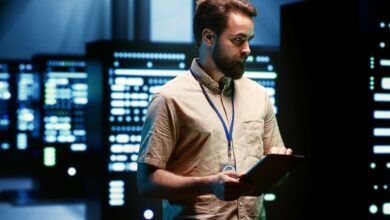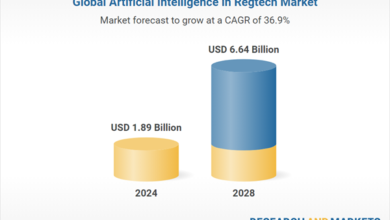Redefining Work, Wealth, And Workforce In 2024 And Beyond – OpEd – Eurasia Review

The integration of artificial intelligence (AI) into the global socioeconomic fabric is no longer a distant prospect but an accelerating reality. The year 2024 marks a watershed moment, as AI’s transformative power reshapes industries, economies, and the very nature of work itself. This technological revolution is not merely augmenting human capabilities; it’s redefining how we live and work, creating both unprecedented opportunities and complex challenges that demand our attention.
The Rise of Intelligent Automation
The most immediate and visible impact of AI is the acceleration of automation. McKinsey & Company’s latest research suggests that nearly half of all work activities could be automated with current technologies. This isn’t confined to blue-collar jobs; white-collar professions like law, medicine, and finance are also experiencing a wave of AI-driven disruption. Algorithms are now capable of drafting legal documents, diagnosing diseases, and managing financial portfolios, tasks once thought to be the exclusive domain of highly trained professionals.
However, the narrative of “robots stealing jobs” is overly simplistic. While some roles are undoubtedly at risk, AI is simultaneously creating new career paths in fields like data science, machine learning engineering and AI ethics. The World Economic Forum’s Future of Jobs Report 2023 predicts that AI will create 97 million new jobs by 2025, outpacing the 85 million jobs it is expected to displace. Additionally, AI is augmenting existing roles, allowing workers to focus on higher-level tasks that require uniquely human skills like creativity, critical thinking and emotional intelligence.
A New Economic Paradigm
AI’s influence on the global economy is nothing short of transformative. A recent PwC report estimates that AI could contribute up to $15.7 trillion to the global economy by 2030, more than the current output of China and India combined. This isn’t merely about increased efficiency; it’s about unlocking new sources of value and reshaping entire industries.
The “AI economy” is already taking shape. Tech behemoths like Google, Microsoft, and Amazon are pouring billions into AI research and development, while AI-powered startups are disrupting established markets with innovative products and services. This has sparked a global race for AI supremacy, with nations vying for leadership in this transformative technology. The rise of the AI economy is expected to create new markets, drive innovation and lead to unprecedented economic growth, but it also raises concerns about inequality and the concentration of power in the hands of a few tech giants.
The Productivity Paradox Revisited
AI’s potential to enhance human productivity is a subject of intense debate. While some studies point to significant gains in output and efficiency, others suggest a “productivity paradox,” where the full benefits of AI have yet to materialize. This paradox may be due to the time it takes for businesses to adapt to new technologies, the need for significant investments in infrastructure and training and the challenge of integrating AI into existing workflows.
However, there are promising signs that this paradox is beginning to resolve. Companies that have successfully implemented AI are reporting significant productivity gains, improved decision-making, and enhanced customer experiences. For instance, in the healthcare sector, AI algorithms are analyzing medical images to detect early signs of diseases like cancer with greater accuracy than human radiologists, leading to faster diagnoses and improved patient outcomes. In the financial sector, AI-powered robo-advisors are providing personalized investment advice at a fraction of the cost of traditional financial advisors, democratizing access to wealth management services. Meanwhile, in the retail industry, AI-driven recommendation engines are personalizing shopping experiences and boosting sales, while AI-powered inventory management systems are optimizing stock levels and reducing waste.
Ethical Crossroads and Societal Implications
As AI becomes more deeply embedded in our lives, ethical considerations are taking center stage. Algorithmic bias, job displacement, and the potential for AI to be weaponized are raising profound questions about how this technology should be governed and used. There are also concerns about the impact of AI on privacy, autonomy, and human dignity.
Governments, industry leaders and civil society organizations are grappling with these complex issues. The development of ethical frameworks, transparent AI systems and robust regulations will be essential to ensure that AI benefits humanity as a whole. Additionally, there is a growing need for public discourse and education about AI to ensure that its development and deployment are aligned with societal values.
The Road to an AI-Powered Future
The AI revolution is still in its early stages but its trajectory is clear. Work as we know it is being redefined, economic landscapes are shifting and the very nature of human productivity is evolving. Embracing this change with a focus on education, upskilling and ethical considerations will be key to navigating this new era.
Governments and educational institutions must invest in training programs to equip workers with the skills needed to thrive in the AI-powered economy. Businesses must adopt responsible AI practices, prioritizing transparency, fairness and accountability. And individuals must embrace lifelong learning to adapt to the changing demands of the workplace.
The future of work isn’t about humans versus machines; it’s about humans and machines collaborating to achieve unprecedented levels of innovation and prosperity. Embracing AI with a clear-eyed understanding of its potential and pitfalls is the key to thriving in this new era. The road to an AI-powered future is paved with both challenges and opportunities, and it’s up to us to navigate it wisely, ensuring that AI serves humanity and creates a more equitable and prosperous world for all.


